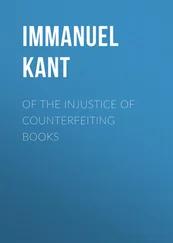The investigation of the conditions under which adaptation of nature to intelligence is conceivable and possible makes up the subject of the third great Kritik , the Kritik of Judgment , a work presenting unusual difficulties to the interpreter of the Kantian system. The general principle of the adaptation of nature to our faculties of cognition has two specific applications, with the second of which it is more closely connected than with the first. In the first place, the adaptation may be merely subjective, when the empirical condition for the exercise of judgment is furnished by the feeling of pleasure or pain; such adaptation is aesthetic. In the second place, the adaptation may be objective or logical, when empirical facts are given of such a kind that their possibility can be conceived only through the notion of the end realized in them; such adaptation is teleological, and the empirical facts in question are organisms.
Aesthetics, or the scientific consideration of the judgments resting on the feelings of pleasure and pain arising from the harmony or want of harmony between the particular of experience and the laws of understanding, is the special subject of the Kritik of Judgment , but the doctrine of teleology there unfolded is the more important for the complete view of the critical system. For the analysis of the teleological judgment and of the consequences flowing from it leads to the final statement of the nature of experience as conceived by Kant. The phenomena of organic production furnish data for a special kind of judgment, which, however, involves or rests upon a quite general principle, that of the contingency of the particular element in nature and its subjectively necessary adaptation to our faculty of cognition. The notion of contingency arises, according to Kant, from the fact that understanding and sense are distinct, that understanding does not determine the particular of sense, and, consequently, that the principle of the adaptation of the particular to our understanding is merely supplied by reason on account of the peculiarity or limited character of understanding. End in nature, therefore, is a subjective or problematic conception, implying the limits of understanding, and consequently resting upon the idea of an understanding constituted unlike ours — of an intuitive understanding in which particular and universal should be given together. The idea of such an understanding is, for cognition, transcendent, for no corresponding fact of intuition is furnished, but it is realized with practical certainty in relation to reason as practical. For we are, from practical grounds, compelled with at least practical necessity to ascribe a certain aim or end to this supreme understanding. The moral law, or reason as practical, prescribes the realization of the highest good, and such realization implies a higher order than that of nature. We must, therefore, regard the supreme cause as a moral cause, and nature as so ordered that realization of the moral end is in it possible. The final conception of the Kantian philosophy is, therefore, that of ethical teleology. As Kant expresses it in a remarkable passage of the Kritik , “The systematic unity of ends in this world of intelligences, which, although as mere nature it is to be called only the world of sense, can yet as a system of freedom be called an intelligible, i.e. moral world ( regnum gratiae ), leads inevitably to the teleological unity of all things which constitute this great whole according to universal natural laws, just as the unity of the former is according to universal and necessary moral laws, and unites the practical with the speculative reason. The world must be represented as having originated from an idea, if it is to harmonize with that use of reason without which we should hold ourselves unworthy of reason — viz. the moral use, which rests entirely on the idea of the supreme good. Hence all natural research tends towards the form of a system of ends, and in its highest development would be a physico-theology. But this, since it arises from the moral order as a unity grounded in the very essence of freedom and not accidentally instituted by external commands, establishes the teleology of nature on grounds which a priori must be inseparably connected with the inner possibility of things. The teleology of nature is thus made to rest on a transcendental theology, which takes the ideal of supreme ontological perfection as a principle of systematic unity, a principle which connects all things according to universal and necessary natural laws, since they all have their origin in the absolute necessity of a single primal being”.
KANT’S INAUGURAL DISSERTATION OF 1770
Table of Contents
Table of Contents
Section I: On the Idea of a World in General
Section II: On the Distinction between the Sensible and the Intelligible Generally
Section III: On the Principles of the Form of the Sensible World
Section IV: On the Principle of the Form of the Intelligible World
Section V: On the Method Respecting the Sensuous and the Intellectual in Metaphysics
Notes
De Mundi Sensibilis atque Intelligibilis Forma et Principiis
Dissertation on the Form and Principles of the Sensible and the Intelligible World
SECTION I
ON THE IDEA OF A WORLD IN GENERAL
Table of Contents
As the analysis of a substantial composite terminates only in a part which is not a whole, that is, in a simple part , so synthesis terminates only in a whole which is not a part, that is, the world .
In this exposition of the underlying concept I have had regard not only to the marks pertaining to the distinct cognition of the object, but somewhat also to the two-fold genesis of the concept from the nature of the mind, which, being serviceable to a method of deeper metaphysical insight, by way of example appears to me not a little commendable. For it is one thing, the parts being given, to conceive the composition of the whole by an abstract notion of the intellect, and another thing to follow out this general notion considered as a problem of the reason by the cognitive sensuous faculty, that is, to represent it to one’s self in the concrete by a distinct intuition. The former is done through the class concept by composition , as several things are contained either under it or mutually, and hence by intellectual and universal ideas. The latter rests on the conditions of time, inasmuch as the concept of a composite is possible genetically, that is by synthesis , by the successive union of part to part, and falls under the laws of intuition . Similarly, a substantial composite being given, we easily attain to the idea of the simple parts by the general removal of the intellectual notion of composition; for what remains after the removal of conjunction are the simple parts. But according to the laws of intuitive cognition this is not done, that is, all composition is not removed, except by a regress from the given whole to any possible parts whatsoever—in other words, by an analysis again resting on the condition of time. [1]But since in order to a composite a multiplicity , in order to a whole, the allness , of parts is required, neither the analysis nor the synthesis will be complete; hence neither by the former will the concept of the simple part emerge, nor by the latter the concept of the whole , unless either can be gone through within a time that is finite and assignable.
But since in a continuous quantity the regress from the whole to assignable parts, and in an infinite quantity the progress from the parts to the given whole are endless , complete analysis in the one and complete synthesis in the other direction are impossible; hence neither the whole in the first case as to composition , nor the composite in the latter case as to totality can be thought completely in accordance with the laws of intuition. Unthinkable and impossible being vulgarly deemed to have the same meaning, it is plain why the concepts of the continuous as well as that of the infinite are rejected by most men as concepts whose representation according to the laws of intuitive cognition is impossible. Although I do not here champion these notions, especially not the first, which are considered exploded by many schools, still the following reminder is of the greatest moment. Those who use so perverse an argumentation have fallen into a grave error. [2]For whatever is repugnant to the laws of the intellect and reason is of course impossible, but that which being the object of pure reason does merely not fall under the laws of intuitive cognition is not so. For here the disagreement between the sensuous and the intellectual faculties, whose natures I shall presently explain, indicates nothing except that the abstract ideas which the mind has received from the intellect can often not be followed out in the concrete and converted into intuitions . This subjective difficulty generally feigns some objective repugnance and easily deceives the incautious, the limits by which the human mind is circumscribed being taken for those by which the essence of things themselves is contained.
Читать дальше












